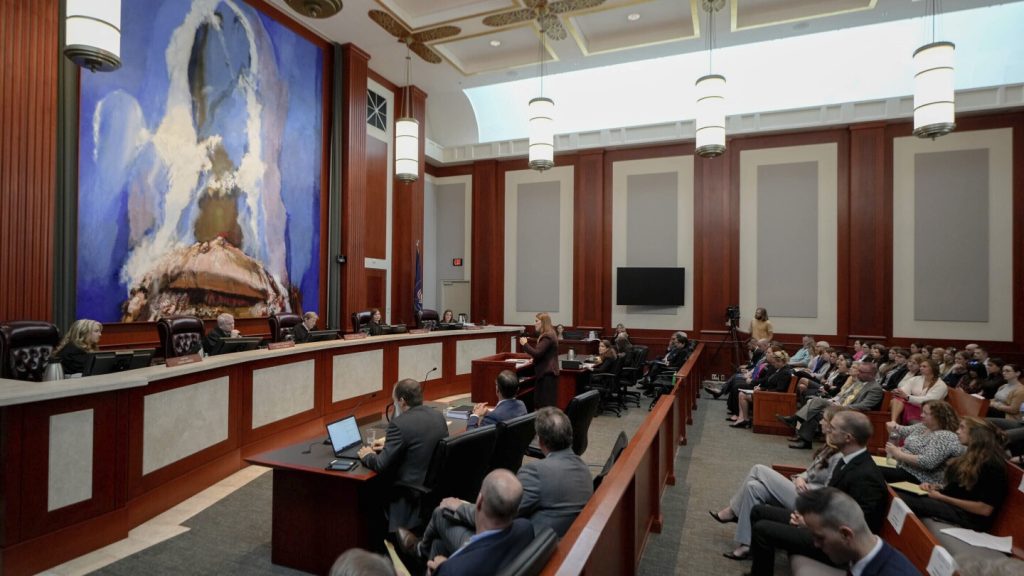Utah’s near-total abortion ban remains on hold after the state Supreme Court ruled to keep the law blocked until its constitutionality can be assessed. This decision means that abortion will continue to be legal up to 18 weeks under another state law that has served as a backup as abortion rights have been challenged. The Planned Parenthood Association of Utah had legal standing to challenge the trigger law, and a lower court was within its rights to initially block the ban. The case will now go back to a lower court to determine whether the law is constitutional.
The trigger law, which is currently on hold, would prohibit abortions except in cases of risk to the mother’s life or fatal fetal abnormality. Utah lawmakers passed this law in 2020 in anticipation of the overturning of Roe v. Wade by the U.S. Supreme Court, which occurred in June 2022. Abortion rights advocates in Utah immediately challenged the law, leading to it being put on hold by a district court judge. A separate state law passed last year allows abortions up to 18 weeks in cases of rape or incest.
President and CEO of the Planned Parenthood Association of Utah, Kathryn Boyd, celebrated the court’s ruling and expressed hope that the trigger law will be struck down permanently so they can continue providing essential reproductive services without political interference. While she acknowledged the win, Boyd emphasized that the fight is not over. Republican officials, including Governor Spencer Cox, expressed disappointment over the further delay of the law’s implementation but hope for a temporary setback. There are talks of reducing the existing 18-week limit to a six-week limit while the trigger law is tied up in litigation.
Republican legislative leaders accused the state Supreme Court of undermining their authority to enact laws for the people of Utah, while several Republicans who supported the law criticized the court for keeping it on hold. House Democrats praised the decision and urged the district court colleagues reviewing the law to consider its impact on the health and well-being of Utah residents. Abortion has become a major issue in the upcoming elections, with several states implementing bans or restrictions, and abortion-related ballot measures going before voters in at least six states.
The U.S. Supreme Court’s decision to not recognize a federal right to abortion has led to a patchwork of state laws and legal battles. State constitutions vary in their protection of abortion access, leading to different outcomes in different states. Despite the current trend of Republican-led states implementing bans, voters in seven statewide measures held since Roe was overturned have sided with abortion rights advocates each time. Abortion is likely to remain a contentious issue in the political landscape leading up to the elections.


